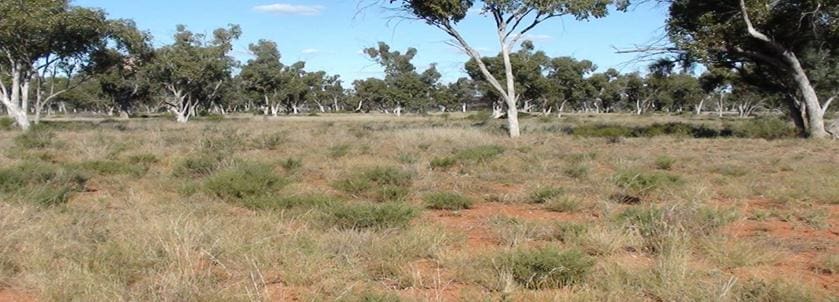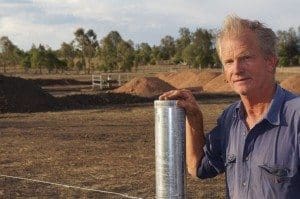If passed in coming months, new legislation in Queensland will soon require landholders to prove their innocence if they find themselves charged with breaching the State’s Vegetation Management Act.
The Palaszczuk Labor Government’s plans to re-introduce a section of the Vegetation Management Act would deem any illegal clearing to have been done by an “occupier” of the land, in the absence of evidence to the contrary.
Lawyer Ari McCamley of Thynne + Macartney told Beef Central this is considered “a reversal of the onus of proof”.
In Australia’s legal system, prosecuting for an offence usually requires the prosecution to prove not only that the offence was committed, but also that the accused was the person who committed it.
If the Government’s Bill is passed, “occupiers” will be found guilty, unless they prove an offence was committed by someone else.
Mr McCamley said Queensland’s Legislative Standards Act establishes fundamental legislative principles that are intended to ensure Queensland legislation has, among other things, sufficient regard to the rights and liberties of individuals.
The Legislative Standards Act specifically identifies the reversal of the onus of proof in criminal proceedings, without adequate justification, as a risk to a parliamentary democracy based on the rule of law.
The Palaszczuk Government, in its notes explaining its bill, says the justification for potentially breaching these fundamental legislative principles includes an assumption that, given the cost of clearing, it is unlikely that someone would clear another’s property without the occupier’s invitation or consent.
The Government also points to precedents, including the laws that assume the owner of a vehicle is responsible for red light and speed camera traffic offences, unless evidence is provided to the contrary.
However, such justification overlooks the broad drafting of the proposed definition of “occupier”, Mr McCamley said.
“Where a property is leased, there may be two “occupiers”, the owner and the lessee,” Mr McCamley explained.
“The Government wants to presume both of them guilty of any illegal clearing unless they prove otherwise. The potential for wrongful convictions is a sign of a bad law.”
Removal of the ‘mistake of fact’ defence
Another proposed change in the same legislative amendment bill which has not received significant public attention involves the removal of the “mistake of fact” defence.
Since 2013, landholders charged with a vegetation management offence have been able to defend a prosecution on the basis that “a reasonable and honest but mistaken belief” led to the offence.
Mr McCamley says “mistake of fact” provisions are an established general principle of Australia’s legal system, and a principle that applies to almost all criminal offences.
“Given problems with the Government’s mapping and the proposed retrospective changes to certain exempt (white-coloured) areas, honest mistakes in managing vegetation will continue to occur,” Mr McCamley said.
“However, the Government wants to make it easier to prosecute by preventing honest mistakes being raised as a defence.”
Public silence ‘deafening’: Landholder
Cattle producer Richard Golden told Beef Central he is astonished that Queensland Government moves to reverse the onus of proof provisions for landholders facing vegetation management charges are not attracting greater attention in the wider community.
“The silence from the Civil Liberties movement is deafening,” Mr Golden said.
“Had this been part of the anti-bikie laws, I can just imagine how much fuss would have been made, but apparently it’s okay to do it to me, my family, my friends and all the rest of Queensland’s food and fibre producers.”
Mr Golden said the implementation of onerous tree clearing laws by the former Bligh Labor government had restricted effective vegetation management on agricultural holdings across Queensland, including freehold titles.
He said he is concerned the new “punitive reverse onus of proof” provisions will mean that a charge will stand unless the accused can prove they are innocent.
This flew in the face of the fundamental principle of justice “innocent until proven guilty”, which required the accuser to prove their accusation.
“The Newman LNP government amended the Vegetation Management Act and removed this repugnant part, once again establishing the norm of ‘innocent until proven guilty’,” Mr Golden said.
“Now as part of delivering the Palaszczuk government’s preference promise to the Green Party the reverse onus of proof is to be reintroduced.
“This places me as a lower form of life than an accused rapist, or child molester, or terrorist or whatever, all of whom are regarded by the law as innocent until proven guilty.
“I regard the plan to reintroduce the reverse onus of proof as a blatant injustice, and a shame on the government and the institution of the Parliament, and every member who votes in favour of it.”
“And the silence from the Civil Liberties groups is a shame on them as well.”
Where to now?
The legislation was introduced into Queensland parliament on March 17.
The minority Palaszczuk government is facing pressure from the Greens and environmental groups to halt all land clearing in Queensland.
It is also threatening to ‘retrospectively’ target previously-conducted illegal clearing if and when the bill is passed.
“If someone does undertake clearing of vegetation captured by this bill after its introduction, they will retrospectively be required to restore the area that has been illegally cleared,” Premier Annastacia Palaszczuk was quoted as saying in The Australian.
The proposed bill has been referred to the state parliamentary Agriculture and Environment committee, which is due to report on June 30.
The legislation has been opposed by the Liberal National Party and the Katter Australian Party.
The Palaszczuk government would require the votes of independent North Queensland MPs Billy Gordon and Rob Pyne and speaker Peter Wellington for the legislation to pass.
Landholder representative group AgForce Queensland says that if passed, the legislation will mean landholders have less control over the management of their properties, with more control handed to Brisbane-based politicians bureaucrats.
The bill also extends restrictions to three extra catchments along the Great Barrier Reef and will prevent landowners from being able to apply for high-value agriculture permits, introduced by the Newman government, which allow large-scale clearing of native vegetation for cropping and horticulture.


